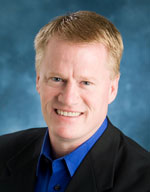Column: Hemingway’s Michigan
Dear Loyal Readers,
Although I was officially on vacation this week, because I spent a few days retracing Ernest Hemingway’s haunts in northern Michigan, I decided to take a couple hours – more than I intended! – to combine two of my previous columns: one that ran in the Detroit News in 1998, and one that Time commissioned in 1999 but didn’t run, due to JFK Jr.’s tragic plane crash the same week.
I was inspired by meeting again with Ernest H. Mainland, Hemingway’s nephew, whom I first met 12 years ago pursuing these pieces. He has become a good friend. Then, after a round of golf, I coaxed another old friend, Jeff Johnson, into joining me for an impromptu tour of nearby Horton Bay. While telling Jeff about some of the stories Hemingway based there, a man named Robert walked down the road and joined us, then invited us for a drink with his girlfriend at his rental cabin just up the road – which turned out to be Shangri-La, where the Hemingways honeymooned in 1922. [Full Story]





